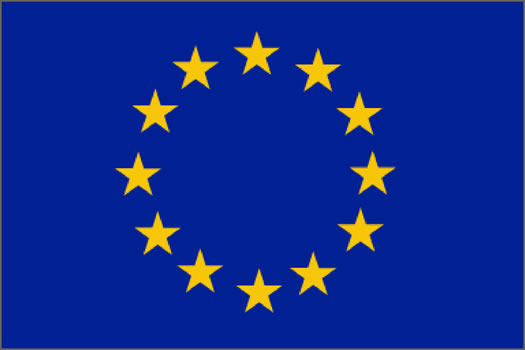As part of the European Union’s Global Gateway initiative, Nigeria, alongside fellow African countries, is slated to benefit from a substantial financial package totaling €150 billion by the year 2027.
This initiative is strategically designed to bolster connectivity, foster sustainable development, and fortify economic relations between the European Union and its partnering nations, with a particular focus on Nigeria.
The European Union’s Global Gateway initiative will offer extensive support to Nigeria to enhance infrastructure connectivity encompassing transport, energy, and digital networks. Additionally, it will contribute to sectors like agriculture, economic growth, healthcare, and education, while promoting sustainability and environmental conservation.
The initiative is also geared towards fostering cooperation and partnerships with Nigeria and other collaborating countries.
The official launch of the initiative took place in Abuja on Thursday, where Jutta Urpilainen, the EU Commissioner for International Partnerships, emphasized that Nigeria will hold a significant position in the investment package allocated to the African region under this ambitious initiative.
She said, “We are living in an increasingly fragmented world. The war that Russia started against Ukraine last year, the military takeover in Niger in July, and the escalation in the Israel-Palestine conflict, are just stark reminders of that.”
Speaking further, she noted that the gateway strategy is needed ‘to build resilient connections in the world through strategic partnerships to jointly address the challenges of our times from fighting climate change to improving health systems.
“Together, we intend to mobilise 300 billion Euros in investments by the year 2027, half of them for Africa. For Africa, it is 150 billion Euros by the year 2027. When it comes to Nigeria, Nigeria features prominently in the Global Gateway investment package.”
Jutta further announced the European Union’s commitment to assisting Nigeria with the implementation of 5G technology. In line with efforts to bolster the digital economy, the EU is actively exploring the possibility of providing a loan to aid Small and Medium Enterprises (SMEs) operating in the digital and print industries.
The EU has allocated financial resources to bolster Nigeria’s energy sector. This includes initiatives such as establishing mini-grids and small hydropower plants with the dual aim of supporting productive endeavors and public needs.
She added, “Last year, we launched a digital economic package for Nigeria. With EU and European Investment Banks, investments worth 820 million Euros is a lot of money. We are already supporting the rollout of digital IDs nationwide and mobile network expansion with MTN in Lagos and other states.
“We are also about to launch the construction of a line between Katsina and Daura twin lines, and we are proposing to reinforce the Nigeria-Benin interconnection of the framework of the West African power pole.
“Education is the most transformative investment one can make, and I am very glad to launch the empowerment in North Western Nigeria Project. I think this project is a tangible sign of our cooperation with the Government to promote quality basic education in the northern regions.”
She stated further, “Nigeria is also a major beneficiary of the student mobility and higher education cooperation project under Erasmus+. I was looking at the figures, last year, over 2,020 students from Nigeria were granted scholarships for studying in the EU.
“Global Gateway reinforces the EU-Nigeria partnership. It really brings opportunities to all. We want to continue working together with you to take our partnership to a higher level of shared prosperity. We will do that together with the Government, Member States, Civil Society Organizations, as well as with the business community.”
The Minister of Communication, Innovation, and Digital Economy, Bosun Tijani, highlighted the significance of initiatives like the Global Gateway, which are aimed at achieving collective regional and global prosperity. He underlined the strong alignment of these efforts with President Bola Ahmed Tinubu’s renewed hope agenda.
Tijani emphasised that at the heart of the administration’s agenda is the vision of a developed Nigeria that benefits all its citizens, not just a select few. This provides the government with the opportunity to execute its plans in sectors of focus.
He also pointed out the historical roots and deep ties between Africa and Europe, emphasizing shared values, collaboration, and mutual respect. Tijani highlighted geographical proximity and the interwoven cultures, emphasizing a shared future. He stressed that the shared dream of a better future can only be fully realized by harnessing the longstanding connections that have been built over time.
“We can build a more resilient world. If we empower and enable Africa to leverage its resources to contribute to the world while strengthening its local economies. On the other hand, working together with the EU gives us the opportunity to leverage its structure and historical resources to do more for the world, specifically for Africa.
“For us in the Ministry of Communication, Innovation and Digital Economy, our role takes on further significance as we have a portfolio that will be central to all we want to achieve under the Global Gateway program.
“Nigeria is a country that is extremely blessed; not only are we blessed with natural resources that can provide opportunities for us to help meet global challenges and food security, but we are also blessed with a very young, agile population.
“As a continent, Africa is blessed with a population of about 40 per cent of young people under the age of 25, which is extremely exciting. Nigeria in particular is blessed with about 60 per cent of our population being under the age of 25.
“This population of young people are digital natives. The investment of our government is providing opportunities for these young people to participate in the global economy. While doing that, we are conscious of the fact that these resources are not only for the development of Nigeria but the development of the world as a whole.”



